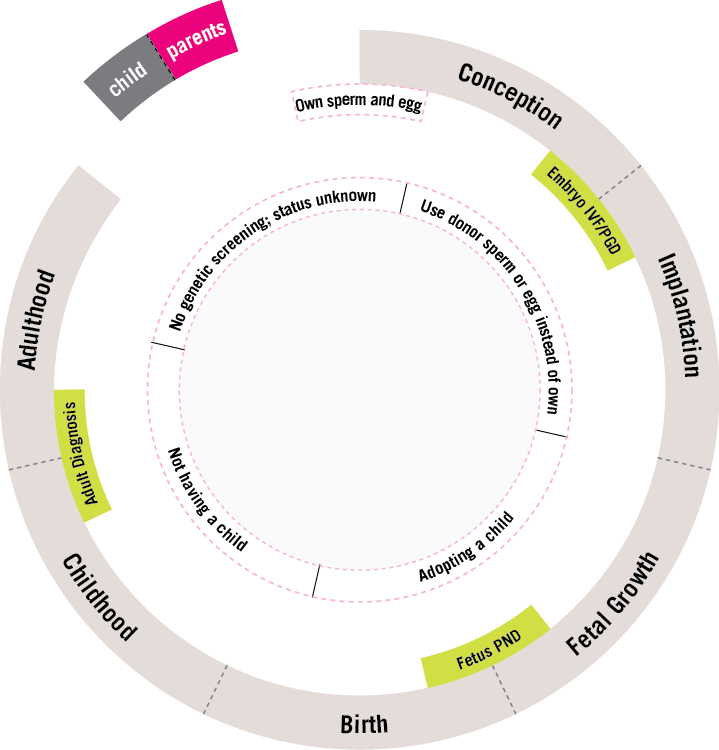Reproductive Considerations:
BRCA carriers may face unique considerations in balancing both their reproductive planning and cancer risk management. Aside from reproductive considerations directly related to personal cancer risk, some families may want to reduce the chances that their child will inherit the BRCA mutation.
You receive 2 copies of every gene in the genome, one from your mother and one from your father. The increased cancer risk associated with BRCA mutations occurs when one mutated copy of the gene is received [passed on] from either your mother or your father. Since carriers have one mutated gene and one functioning gene, there is a 50% chance that a child will be born with the mutated version of the gene. (info 2)
-

Info 2: Mendelian inheritance model
For carriers concerned about transmitting the BRCA mutation to their children, there are many reproductive options available (info 3). It is always an option to have a child regardless of parental carrier status, because presence of mutation does not mean a child will necessarily develop cancer, and treatment options are rapidly evolving. As stated before, there is a 50% chance that the BRCA mutation will be passed along to the child. For some, it may be very important that their child does not inherit the BRCA mutation. For these individuals adoption is always available. In addition, individuals may want to seek out a sperm donor (in cases in which the father is the carrier), or an egg donor when the mother is the carrier. One option that has recently been made available for BRCA carriers is Preimplantation Genetic Diagnosis (PGD).
-

Info 3: Reproductive options The outer circle shows the stages of development of a child and the options for BRCA1/2 testing. The inner circle shows the other reproductive options.